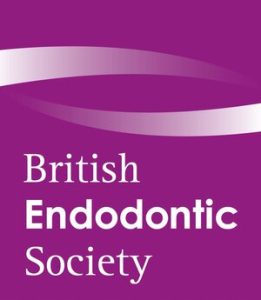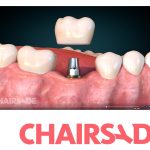Author: Dr Satnam Singh Virdee [Clinical Lecturer & Honorary Specialty Registrar – Restorative Dentistry]
While many patients tend to dread root canal treatment, when it’s carried out to a high standard, the success rate is up to 90%.[i] Dental pulp infection is the leading cause of apical periodontitis, which has a varied prevalence between 7 and 86%, with post-treatment apical periodontitis between 10 and 62%. As such, the effective treatment of endodontic infections – alongside high-quality preparation, coronal restoration, and root filling – is crucial in the treatment and prevention of apical periodontitis.[ii]
Exploring factors which improve endodontic treatment outcomes
Endodontic infections are common,[iii] and can have a serious impact on the quality of life of those who suffer. My research investigates the techniques used to identify biomarkers of apical periodontitis, the efficacy of various irrigation techniques and solutions, and the potential for stem cell therapy to be used in endodontic treatment to improve success rates.
In order to improve the diagnosis of endodontic disease, my in vitro methodological & in vivo cross-sectional study[iv] explored whether periradicular tissue fluid (PTF) is a valid source of biomarkers to differentiate between disease and health. The study showed that PTF indeed reveals complex interconnected networks of biomarkers, with TNFSF-12 exhibiting excellent diagnostic ability, and acting as a potential biosignature for asymptomatic apical periodontitis.
How research benefits career progression
Being awarded the BES Grant for Research Work by the British Endodontic Society (BES) has significantly helped my academic career prospects. The award allowed me to collect primary data for the aforementioned research, which has been presented and published at national and international conferences, leading to several other awards. It has also assisted in the completion of my PhD in regenerative endodontics. Receiving an award from a prestigious and well recognised society has instilled confidence in my ability as a researcher and the institute in subsequent successful grant applications.
The BES Grant for Research Work is one of many benefits of being a member of the BES. There are a number of other awards that professionals from different primary and secondary backgrounds can apply to. Other membership benefits include access to the latest research in the International Endodontic Journal, being part of the various initiatives being launched by the society, the two national meetings and, of course, connecting with like-minded individuals from across the world.

For more information about the BES, or to join, please visit the website
www.britishendodonticsociety.org.ukor call 01494 581542
[i] British Endodontic Society. Patients & Public. Accessed Dec 23. https://britishendodonticsociety.org.uk/public/further_information.aspx
[ii] Persoon IF, Özok AR. Definitions and Epidemiology of Endodontic Infections. Curr Oral Health Rep. 2017;4(4):278-285. doi: 10.1007/s40496-017-0161-z. Epub 2017 Nov 8. PMID: 29201596; PMCID: PMC5688219.
[iii] Siqueira JF Jr, Rôças IN. Present status and future directions: Microbiology of endodontic infections. Int Endod J. 2022 May;55 Suppl 3:512-530. doi: 10.1111/iej.13677. Epub 2022 Jan 13. PMID: 34958494.
[iv] Virdee SS, Bashir NZ, Krstic M, Camilleri J, Grant MM, Cooper PR, Tomson PL (2023) Periradicular tissue fluid-derived biomarkers for apical periodontitis: an in vitro methodological & in vivo cross-sectional study. International Endodontic Journal, 56, 1222-1240.








